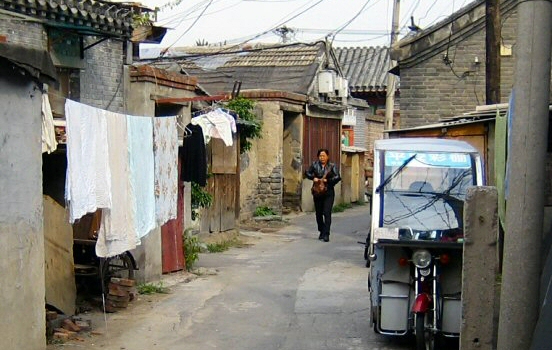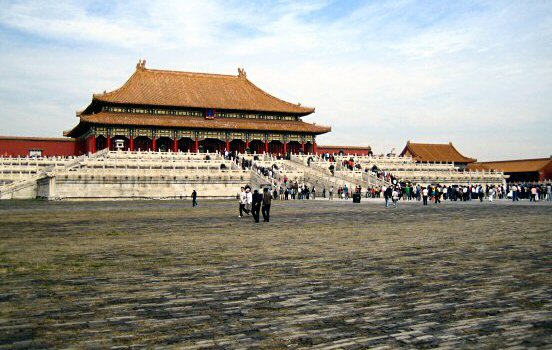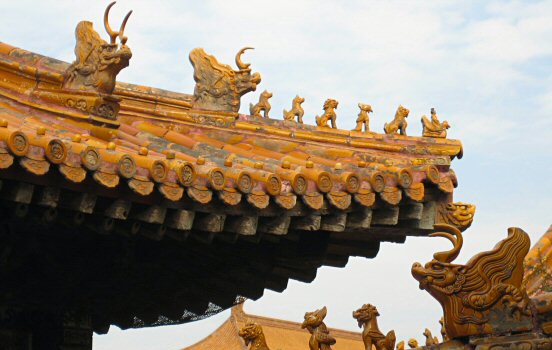Beijing is a magnificent monster built on dynasties, revolutions and dumplings fried in oil older than your ancestors. The smog rolls in like a bad hangover while the traffic honks with imperial authority.
I start by getting lost in the traditional hutong alleys. During the last decades a lot of the hutongs have been demolished to make way for modern buildings, but few enough remains for me to quickly lose my bearing. I pass by old ladies half my size, stern men playing card games with the ferocity of generals at war and wet laundry wrapped in diesel fumes.
 Through a hutong.
Through a hutong.
The streets are filled with noodle joints where cooks slap dough with the kind of violence usually reserved for mob enforcers, serving hot bowls of mystic broth slurped at plastic tables under flickering neon lights. Scooters fly past me like they have a grand prix to win. No helmets. No rules. Just normal life in Beijing.
I dodge a few scooters and try to casually sweep through the food court like Anthony Bourdain, but my noodles turn out to be awful. I feel more like John Hurt in movie “Alien”, just waiting for the chestburster to appear. This is the real deal, not the sanitized version they peddle overseas.
I walk through the Tiananmen gate beneath the well-known portrait of Mao and enter a different world. At the heart of it all, wrapped in a cloak of red walls and the weight of a million ghostly footsteps, lies the Forbidden City. Here, emperors once ruled behind vermillion walls, beneath roofs adorned with golden beasts.
 The Hall of Supreme Harmony.
The Hall of Supreme Harmony.
The compound is built on an enormous scale, like a city within the city. The walled area of the former imperial palace is where the emperor ruled the empire uncontested for 500 years until 1912. They called it “forbidden” because it was, commoners weren’t allowed inside.
The symmetry is maddening. Straight lines, right angles, ceremonial perfection. No room for spontaneity here. This was a world meticulously crafted to remind everyone who was boss.
 Roof guardians.
Roof guardians.
But scratch the lacquer and it bleeds history. Courtyards that saw betrayal and blood. Whispered plots in shaded corridors. Eunuchs and concubines, warlords and poets, they were all pawns in an imperial soap opera that ran for centuries. Now, they’re dust.
I sit down in the Imperial Garden for a cup of tea, reflecting on the privilege to be able to sit here at all. In Beijing, the past isn’t dead. It’s not even past.
Related posts

Comments
No comments yet.
Leave a reply